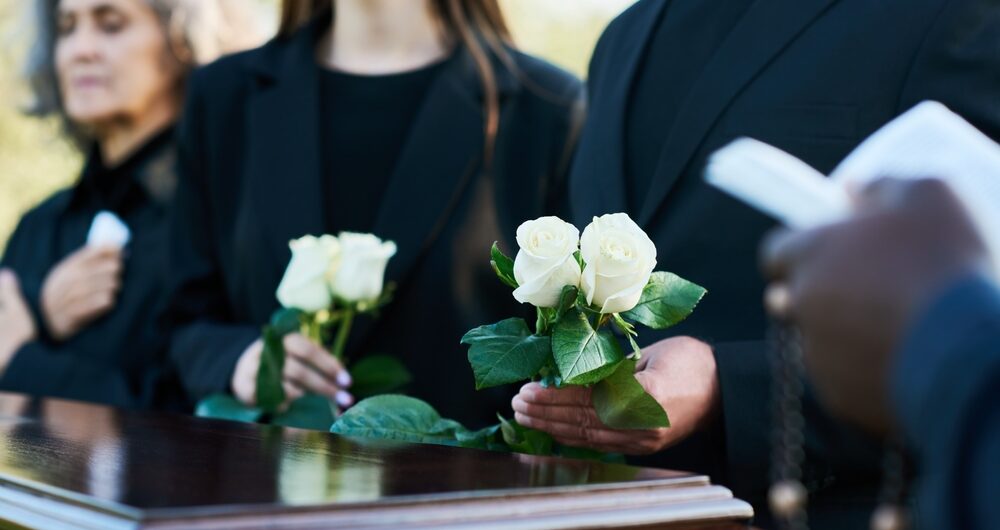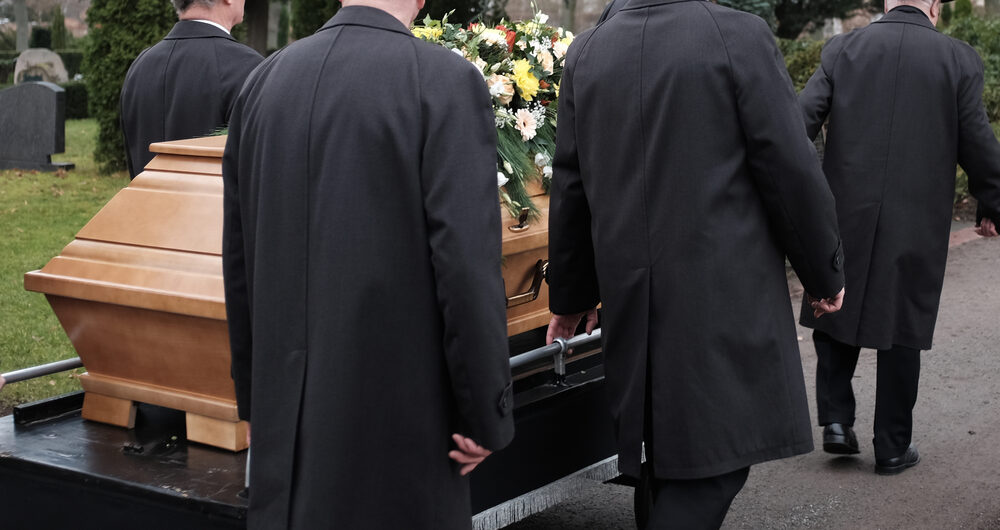In a tragic event involving a wrongful death, it is essential to understand who can take legal action. A wrongful death case can be initiated by several entities, primarily the immediate family of the deceased, including surviving spouse, offspring, and parents. They hold the right to seek compensation through a lawsuit.
In addition, there are circumstances where other individuals such as dependent minors living in the deceased’s home, other heirs, and next of kin have the legal ground to assert a wrongful death claim. In some cases, an authorized representative of the deceased’s estate can also become a party.
Navigating the complexities of a wrongful death lawsuit can be arduous, but rest assured, Belal Hamideh, an accomplished wrongful death attorney, is here to guide you. Reach out for a complimentary case evaluation, accessible through our website or a phone call.
Experiencing the untimely demise of a loved one due to someone else’s negligence is not only painful but can also be overwhelmingly distressing. If a negligent action has snatched a precious life from you, it’s vital to know your entitlement to claim compensation. Although no amount of money can truly compensate for your loss, it’s crucial nonetheless. A solid case established with the help of a competent wrongful death attorney can secure this compensation, providing financial aid for funeral expenses, medical bills, and to alleviate your pain and suffering.
Meet Belal Hamideh, a seasoned wrongful death attorney based in California. With a plethora of experience dealing with wrongful death claims, his extensive skillset is invaluable in your pursuit of justice. Using his vast expertise, Belal advocates relentlessly for your cause, ensuring that you receive the highest possible remuneration for your suffering. In addition, he offers a complimentary evaluation of your case, where he will assess the potential value of your claim and how best he can support you.
Interpreting the Definition of Wrongful Death
In California, wrongful death is the demise of an individual brought about by another’s wrongful act. The gamut of such acts ranges from negligent and reckless actions to intentional harm. Deliberate actions can even result in criminal charges against the person responsible.

If you find yourself in a situation where you have lost a loved one due to someone else’s wrongdoing, you may be eligible for a wrongful death lawsuit. Should you be uncertain about your eligibility, it would be prudent to seek advice from a proficient attorney.
Establishing a Wrongful Death Claim
To vindicate a wrongful death claim, four factors must be proven. First and foremost, evidence must be produced to establish that the defendant’s negligent or reckless action contributed in some way to the death of your loved one. Noteworthy is the fact that, even if the actions of the defendant were only partially responsible, your claim would still be valid.
Secondly, it must be demonstrated that the defendant had a duty of care towards the victim – your deceased loved one. This duty varies depending on the context, like a healthcare provider’s obligation to a patient or a driver’s responsibility to adhere to traffic rules.
Thirdly, it must be proven that the defendant’s failure to fulfill this duty resulted in the death of your loved one. Lastly, proof must be provided that the death of your loved one brought about quantifiable damages, such as medical expenses, funeral costs, loss of income or projected income, and your pain and suffering. These damages can also encompass a loss of guidance, protection, and inheritance.
Embarking on a wrongful death lawsuit can be a journey riddled with complications and hurdles. However, with an experienced attorney like Belal Hamideh on your side, you can navigate this process smoothly. With in-depth experience and proficiency in handling California wrongful death cases, Belal offers relentless representation to fight for the justice you deserve.
Understanding Compensation in California Wrongful Death Cases
In the devastating aftermath of losing a loved one to wrongful death, one of the paramount concerns that most individuals are faced with is the nature and extent of available compensation in the state of California. The reparation in such cases tends to split into two key categories, namely economic and non-economic damages.
The economic damages pertain to actual and quantifiable expenses and losses, which include funeral and burial expenditures, medical costs incurred prior to the death, and lost earnings that the deceased would have contributed. On the opposite side, non-economic damages cover more subjective and often difficult to quantify losses such as emotional distress, loss of companionship, and moral support.
Notwithstanding the difficulty in ascribing a monetary figure to these non-economic damages, our unwavering commitment is to work tirelessly to secure the maximum possible compensation for our clients.
Investigating the Variety of Compensation Available in Wrongful Death Cases
The compensation awarded in wrongful death cases usually hinges on several factors, including the deceased’s life expectancy at the time of the wrongful act, the claimant’s life expectancy, among others.
In terms of economic damages, these commonly encompass the cost of the funeral or burial, the financial support the heirs anticipated receiving, the loss of services around the household, and the expected benefits or gifts from the deceased. Conversely, non-economic damages cater to the emotional anguish triggered by the untimely loss of a loved one, which may include the loss of companionship, affection, protection, moral support, guidance, training, and loss of consortium.
There is, however, an essential caveat in California’s law that excludes punitive damages in wrongful death cases. To access punitive damages, a survival action needs to be pursued concurrently with the wrongful death claim, provided they both originate from the same wrongful act.
As part of your consultation with Belal, he will provide clear guidance on the likely outcomes of your case, utilizing his extensive experience to devise an effective plan aimed at achieving the best possible results.
Eligibility for Compensation in Wrongful Death Lawsuits
Grasping the legal stipulations that determine who can seek compensation in a wrongful death lawsuit is critical. Typically, the surviving spouse and children of the deceased are the first in line to file a wrongful death claim. In scenarios where the deceased had no dependents or immediate family, the parents may be considered the beneficiaries.
Decoding the criteria for compensation eligibility in wrongful death lawsuits can be confusing, often leaving many in a state of uncertainty about their eligibility, potential compensation, and more. To successfully navigate this intricate process, it is advisable to seek the guidance of an attorney specialized in wrongful death cases, such as Belal Hamideh.
Our Integral Role as Your Wrongful Death Lawyer in California
Engaging the services of our attorney, with his abundant experience in wrongful death cases, considerably amplifies your likelihood of receiving maximum restitution. Belal assumes the pivotal role of managing every aspect of your case, with the primary goal of affording you peace of mind during these trying times.
Our principal objective is to shoulder the legal processes and proceedings for our clients. We understand that dealing with the loss of a loved one is a challenging time filled with an overwhelming assortment of responsibilities and decisions. The added strain of a legal case can seem overwhelming. By leaving your case in Belal’s capable hands, you are free to focus on healing, honoring your departed loved one’s memory, and gradually navigating the grieving process.
As soon as we take on your case, our proficient team embarks on a comprehensive investigation into the circumstances surrounding your loved one’s wrongful death. The revelation of the event’s truth, identifying the parties involved, and building a compelling case for our clients form the cornerstone of our strategy. Often, the liability for the wrongful death may fall on multiple entities. We are devoted to exposing their shared responsibility and ensuring all the guilty parties are held liable by law.
Consider an instance where your relative perished in a tragic accident involving a large truck; we will prosecute all those implicated in the accident. This group comprises the truck driver, the person responsible for loading the truck, the truck owner, other road users, the entity responsible for maintaining road conditions, and any other individuals who might share the blame. Our goal is to uncover the truth and leverage it to strengthen your claim.
Always remember that throughout this process, we serve as a steadfast ally, offering advice, updates, and emotional support at every turn. Losing a loved one in such a way can be emotionally draining, hence we strive to lighten our clients’ emotional burden by providing clarity, reassurance, and hope.
Laws of Wrongful Death in California
These laws may be right for your situation. If you have more questions, call Belal.
California Code, Code of Civil Procedure – CCP § 377.60
A cause of action for the death of a person caused by the wrongful act or neglect of another may be asserted by any of the following persons or by the decedent’s personal representative on their behalf:
(a) The decedent’s surviving spouse, domestic partner, children, and issue of deceased children, or, if there is no surviving issue of the decedent, the persons, including the surviving spouse or domestic partner, who would be entitled to the property of the decedent by intestate succession.If the parents of the decedent would be entitled to bring an action under this subdivision, and the parents are deceased, then the legal guardians of the decedent, if any, may bring an action under this subdivision as if they were the decedent’s parents.
(b)(1) Whether or not qualified under subdivision (a), if they were dependent on the decedent, the putative spouse, children of the putative spouse, stepchildren, parents, or the legal guardians of the decedent if the parents are deceased.
(2) As used in this subdivision, “putative spouse” means the surviving spouse of a void or voidable marriage who is found by the court to have believed in good faith that the marriage to the decedent was valid.
(c) A minor, whether or not qualified under subdivision (a) or (b), if, at the time of the decedent’s death, the minor resided for the previous 180 days in the decedent’s household and was dependent on the decedent for one-half or more of the minor’s support.
(d) This section applies to any cause of action arising on or after January 1, 1993.
(e) The addition of this section by Chapter 178 of the Statutes of 1992 was not intended to adversely affect the standing of any party having standing under prior law, and the standing of parties governed by that version of this section as added by Chapter 178 of the Statutes of 1992 shall be the same as specified herein as amended by Chapter 563 of the Statutes of 1996.
(f)(1) For the purpose of this section, “domestic partner” means a person who, at the time of the decedent’s death, was the domestic partner of the decedent in a registered domestic partnership established in accordance with subdivision (b) of Section 297 of the Family Code.
(2) Notwithstanding paragraph (1), for a death occurring prior to January 1, 2002, a person may maintain a cause of action pursuant to this section as a domestic partner of the decedent by establishing the factors listed in paragraphs (1) to (6), inclusive, of subdivision (b) of Section 297 of the Family Code, as it read pursuant to Section 3 of Chapter 893 of the Statutes of 2001, prior to its becoming inoperative on January 1, 2005.
(3) The amendments made to this subdivision during the 2003-04 Regular Session of the Legislature are not intended to revive any cause of action that has been fully and finally adjudicated by the courts, or that has been settled, or as to which the applicable limitations period has run.
California Code, Code of Civil Procedure – CCP § 335.1
Within two years: An action for assault, battery, or injury to, or for the death of, an individual caused by the wrongful act or neglect of another.
California Code, Code of Civil Procedure – CCP § 377.61
In an action under this article, damages may be awarded that, under all the circumstances of the case, may be just, but may not include damages recoverable under Section 377.34. The court shall determine the respective rights in an award of the persons entitled to assert the cause of action.
California Code, Code of Civil Procedure – CCP § 377.34
(a) In an action or proceeding by a decedent’s personal representative or successor in interest on the decedent’s cause of action, the damages recoverable are limited to the loss or damage that the decedent sustained or incurred before death, including any penalties or punitive or exemplary damages that the decedent would have been entitled to recover had the decedent lived, and do not include damages for pain, suffering, or disfigurement.
(b) Notwithstanding subdivision (a), in an action or proceeding by a decedent’s personal representative or successor in interest on the decedent’s cause of action, the damages recoverable may include damages for pain, suffering, or disfigurement if the action or proceeding was granted a preference pursuant to Section 36 before January 1, 2022, or was filed on or after January 1, 2022, and before January 1, 2026.
(c) A plaintiff who recovers damages pursuant to subdivision (b) between January 1, 2022, and January 1, 2025, inclusive, shall, within 60 days after obtaining a judgment, consent judgment, or court-approved settlement agreement entitling the plaintiff to the damages, submit to the Judicial Council a copy of the judgment, consent judgment, or court-approved settlement agreement, along with a cover sheet detailing all of the following information:
(1) The date the action was filed.
(2) The date of the final disposition of the action.
(3) The amount and type of damages awarded, including economic damages and damages for pain, suffering, or disfigurement.
(d)(1) On or before January 1, 2025, the Judicial Council shall transmit to the Legislature a report detailing the information received pursuant to subdivision (c) for all judgements, consent judgements, or court-approved settlement agreements rendered from January 1, 2022, to July 31, 2024, inclusive, in which damages were recovered pursuant to subdivision (b). The report shall comply with Section 9795 of the Government Code.
(2) This subdivision shall become inoperative on January 1, 2029, pursuant to Section 10231.5 of the Government Code.
(e) Nothing in this section alters Section 3333.2 of the Civil Code.
(f) Nothing in this section affects claims brought pursuant to Chapter 11 (commencing with Section 15600) of Part 3 of Division 9 of the Welfare and Institutions Code.
Opting for a Skilled California Wrongful Death Attorney
Dealing with the grievous loss of a loved one, caused by another’s heedlessness, is an extremely challenging phase in life. Belal Hamideh, a recognized Wrongful Death Attorney from California, acknowledges that he can’t erase the painful memories, but he can certainly lessen the stress. Committed to your cause, his extensive know-how is used to ensure you receive the utmost financial relief for your unfortunate circumstance.
Reach out to us through our website or give us a call for a complimentary case appraisal.

